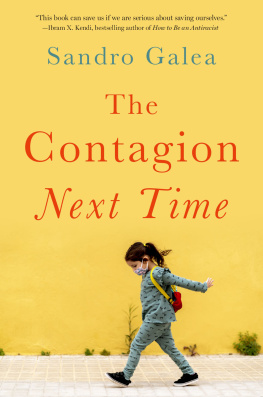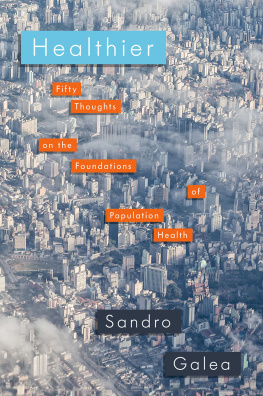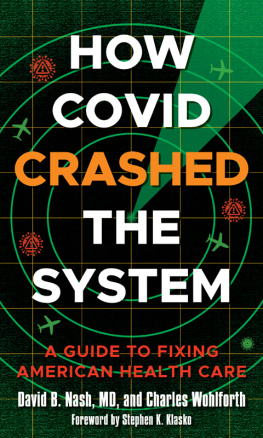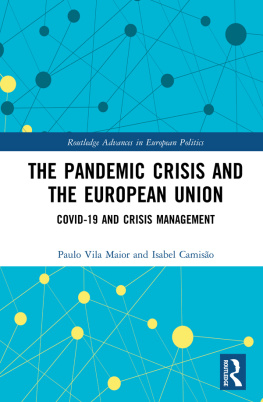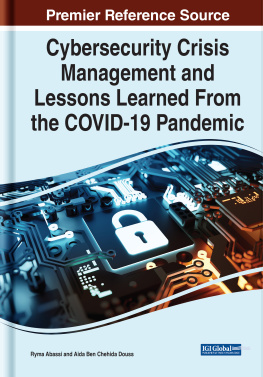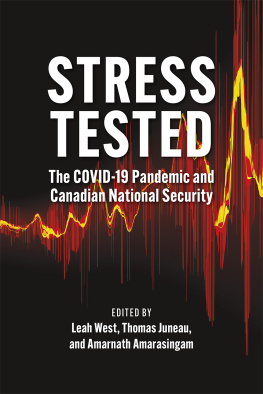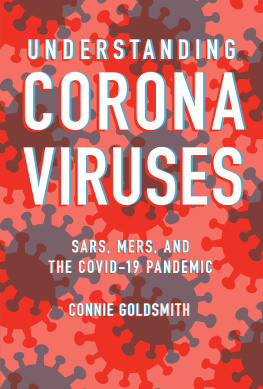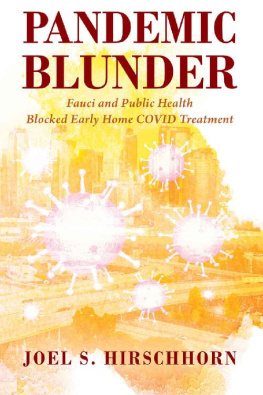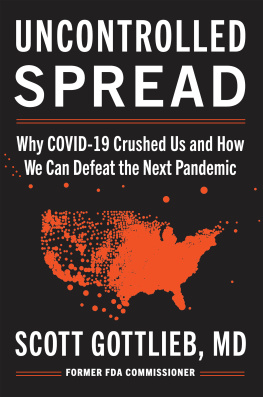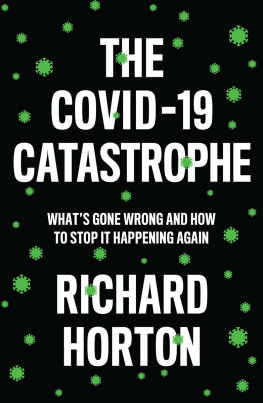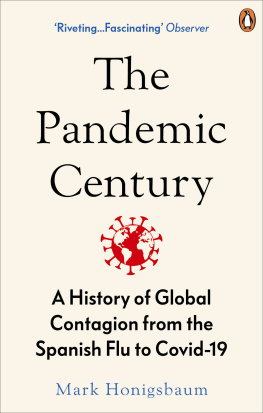Praise for The Contagion Next Time
The Contagion Next Time offers a prescription for our health and well-being that is nothing less than the revolution of values that Rev. Dr. Martin Luther King, Jr. called for in 1967. Sandro Galeas diagnosis rightly indicates that we must address poverty, inequality, and systemic racism to ensure good health. Deeply engaging and insightful, this book is required reading to ensure that we not only survive the next pandemic, but thrive for generations to come.
Shailly Gupta Barnes, Policy Director, Kairos Center and the Poor Peoples Campaign
Sandro Galeas compelling and compassionate new book shows us how we must create a strong foundation in order to avert further pandemics. He urges us to address our pervasive but neglected nonmedical issues, including the American tradition of proud individualism that prevents us from recognizing how our health is interconnected, and reminds us, vividly, that until we begin to invest in our communal physical and mental health, we will remain vulnerable to future threats.
Rosalynn Carter, former First Lady
Sandro Galeas book proves it is possible for us to build a healthier world after Covid-19and the first step is to protect the most vulnerable, whether theyre in our own neighborhoods or across the globe. The Contagion Next Time is truly a must read.
Katie Couric, award-winning journalist
The Contagion Next Time brings into focus why we have never been able to realize an equitable response during pandemics and what change agents can do to create more healthy, equitable, and empowered communities. Sandro Galeas illuminating and pathbreaking work will shape the global conversation around the forces that shape health for generations to come.
Daniel E. Dawes, Executive Director, Satcher Health Leadership Institute at Morehouse School of Medicine and author of The Political Determinants of Health
Clearly and compellingly, Sandro Galea lays out critical steps that we must take as individuals and as a nation to address lessons learned from the pandemic. A must read for policy makers and anyone who wants to shape a healthier future for our country and the world.
Hilary Godwin, Dean, University of Washington School of Public Health
In this unforgettable book, Sandro Galea expertly demonstrates that our investing in the healthiest population possible is literally an act of national security against a future pandemic. The Contagion Next Time issues a clear warning, and a clear way forward. This book can save us if we are serious about saving ourselves.
Ibram X. Kendi, bestselling author of Stamped from the Beginning and How to Be an Antiracist
The Contagion Next Time seamlessly weaves personal narrative, historical accounts, and public health expertise to illuminate the importance of re-centering our everyday experiences to create a healthier society. Sandro Galea powerfully calls for greater investment in social systems to produce equitable outcomes in preparation for the inevitable next health crisis like Covid-19.
Thomas LaVeist, Dean, Tulane University School of Public Health and Tropical Medicine
Covid-19 brings into sharp relief the social determinants of health. Sandro Galea, a gifted communicator, uses his considerable skills to tell the story of how our health is embedded in the nature of society, its history and values. Such understanding is vital not only to controlling pandemics but improving the health of the population.
Sir Michael Marmot, author of Build Back Fairer: The COVID-19 Marmot Review
In the wake of a devastating pandemic, Sandro Galeas incisive narrative shows us why we cannot return to the status quo in a post-Covid world. The Contagion Next Time offers a searing commentary on the cracks in our countrys foundations, shining a light on longstanding inequities and systemic racism. It also gives us reason to hope by reminding us of the opportunities and possibilities available as we reshape our nation and public health. Sandro Galeas optimism is a necessary tool for the road ahead.
Aletha Maybank, Chief Health Equity Officer, SVP, American Medical Association
THE CONTAGION NEXT TIME

Oxford University Press is a department of the University of Oxford. It furthers the Universitys objective of excellence in research, scholarship, and education by publishing worldwide. Oxford is a registered trade mark of Oxford University Press in the UK and certain other countries.
Published in the United States of America by Oxford University Press
198 Madison Avenue, New York, NY 10016, United States of America.
Oxford University Press 2022
All rights reserved. No part of this publication may be reproduced, stored in a retrieval system, or transmitted, in any form or by any means, without the prior permission in writing of Oxford University Press, or as expressly permitted by law, by license, or under terms agreed with the appropriate reproduction rights organization. Inquiries concerning reproduction outside the scope of the above should be sent to the Rights Department, Oxford University Press, at the address above.
You must not circulate this work in any other form and you must impose this same condition on any acquirer.
Library of Congress Cataloging-in-Publication Data
Names: Galea, Sandro, author.
Title: The contagion next time / Sandro Galea.
Description: New York, NY : Oxford University Press, [2022] |
Includes bibliographical references and index.
Identifiers: LCCN 2021038471 (print) | LCCN 2021038472 (ebook) |
ISBN 9780197576427 (hardback) | ISBN 9780197576441 (epub) |
ISBN 9780197576458
Subjects: MESH: Health Status Disparities | Social Determinants of Health |
Global Health | Socioeconomic Factors | Delivery of Health Care |
Pandemicsprevention & control | COVID-19 | United States
Classification: LCC RA563.M56 (print) | LCC RA563.M56 (ebook) |
NLM WA 300 AA1 | DDC 362.1089dc23
LC record available at https://lccn.loc.gov/2021038471
LC ebook record available at https://lccn.loc.gov/2021038472
DOI: 10.1093/oso/9780197576427.001.0001
This book is dedicated, as always, to Isabel Tess Galea, Oliver Luke Galea, and Dr. Margaret Kruk
All I maintain is that on this earth there are pestilences and there are victims, and its up to us, so far as possible, not to join forces with the pestilences.
Albert Camus, The Plague
You dont command wind in the direction it blows, but you command a ship in the direction it sails.
Matshona Dhliwayo
Contents
This book emerges from conversations throughout 2020 that often centered around what that unprecedented year meant for our present, and what it meant for the world we wish to build. I am deeply grateful to all with whom I had the privilege of engaging in conversation throughout the year. A central acknowledgment to Eric DelGizzo and Catherine Ettman. For years now, our triumvirate has been the bedrock of my writing, creating space for ideas to be tested, shaped, improved. Erics hand is here felt in every page of this book. He has an extraordinary ability to inhabit my thoughts, sharpen them, hone them, and put them in historical and Shakespearean perspective. This book, and much else of my public writing, could not happen without him. Thank you. Catherines pragmatic and principled eye on what we are trying to doand why we are doing itkeeps the three of us grounded, pulls us back from occasional overdigression, and reminds me again and again of what a privilege it is to be able to write for a living. Full credit for rendering the figures that illustrate this book, and for bringing to visual life ideas that were only abstractions, goes to Kappy Arnold. Conversations with Drs. Nason Maani, Salma Abdalla, and Margaret Kruk, many of the latter taking place during weekend morning runs, helped me sort, filter, and organize thoughts about what we were living through in 2020, giving me the on-ramp to the ideas that became this book. I owe a debt of gratitude to Sarah Humphreville, my editor at Oxford University Press, who immediately saw the potential of these ideas and encouraged me to turn them into this book, nurturing it to completion. And, finally, I am grateful to alltoo many to namewith whom I had the privilege of writing other academic and public pieces during the past year. I have learned from each of you, and the ideas developed in those pieces shaped my thinking, leading to this book. Thank you.

